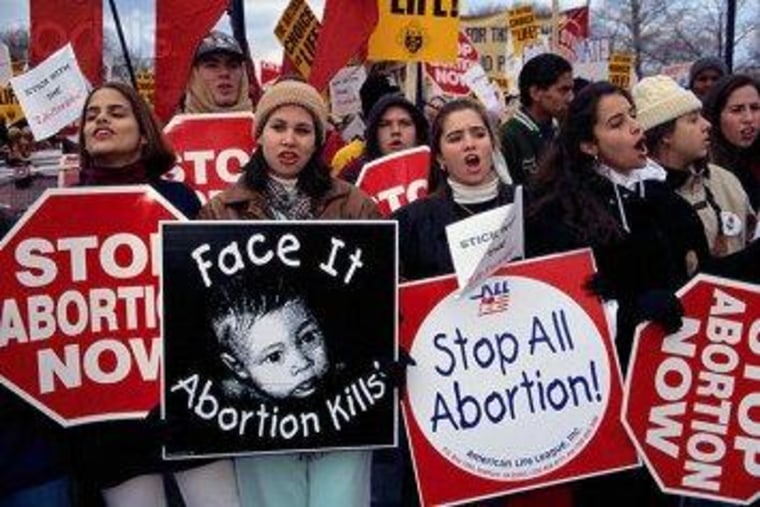While high court rulings are always noteworthy, this morning the Supreme Court also announced some cases it will hear in its next term, two of which are going to be doozies.
For example, the justices will consider a challenge to a 2007 Massachusetts law that bars protests in 35-foot "buffer zones" around abortion clinic entrances, exits and driveways.
The justices on Monday agreed to hear an appeal from abortion opponents, who wanted the law thrown out. The law allows individuals to enter the buffer zone only to enter or leave the clinic or reach a destination other than the clinic.Abortion opponents who regularly stand outside clinics in Boston, Worcester and Springfield claimed the law unfairly keeps them from engaging patients in conversations at a closer distance.The 1st U.S. Circuit Court of Appeals upheld the law, saying it protects rights of prospective patients and clinic employees "without offending the First Amendment rights of others."
And in a case that will have major implications in Washington, recess appointments will have their day in court, too.
The Supreme Court announced Monday that it will decide next term whether President Obama exceeded his constitutional authority by making appointments while the Senate was on break last year.The case at hand involves Obama's appointment of three members of the National Labor Relations Board (NLRB), but the broader issue concerns the power that presidents throughout history have used to fill their administrations in the face of Senate opposition and inaction.The justices will review a broad ruling by a panel of the U.S. Court of Appeals for the District of Columbia Circuit that upset decades of understanding about the president's recess appointment power. The court ruled that presidents may make recess appointments only between enumerated sessions of the Senate, not when senators take an intra-session break.
For more on why this case will matter so much, take a look at our coverage from May.
